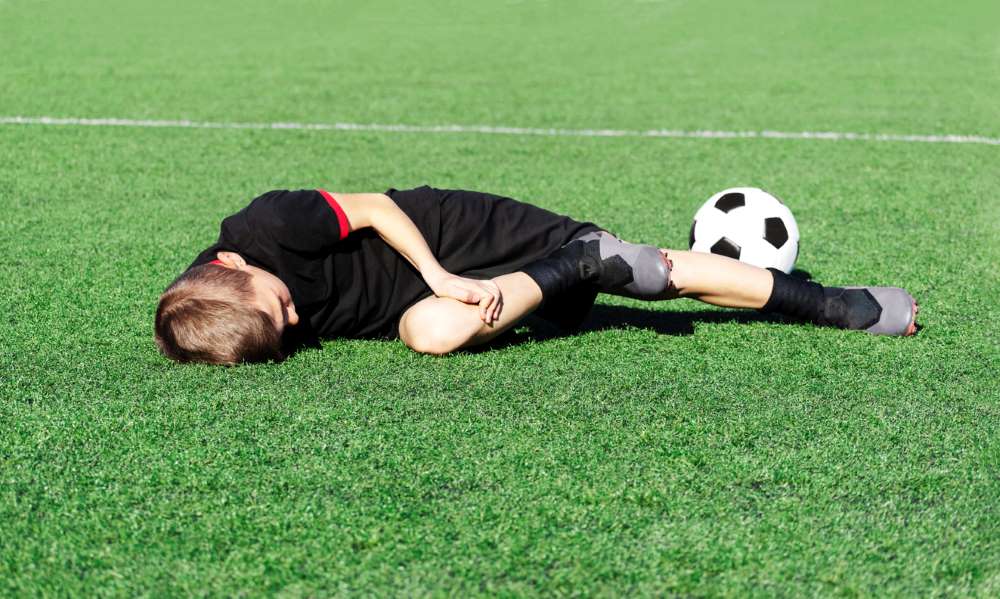
Sports are a crucial part of a child’s healthy lifestyle, teaching them important life skills such as teamwork, responsibility, and how to work under pressure. Unfortunately, as with any other physical activity, sports come with the risk of getting hurt. When these injuries are severe, parents may be subjected to high medical bills, and the child may suffer physically, emotionally, and mentally; sometimes in ways that affect their future. For this reason, parents often want to pursue a case against whoever is responsible for the injury. However, it's sometimes difficult to know whether they should sue the coach or school, or a third party, for the injury. Read on to find out more about the topic.
Assumption of Risk
When attempting to determine who should be held responsible for your child’s sports injuries, you should keep in mind that if the injury occurred during the normal course of a sporting event or game, you may not be able to hold anyone liable. This is because, in most sports, there is an assumption of risk involved. In addition, before allowing their children to play a sport at school, most parents are asked to sign a permission slip which acts as a waiver for suing the school for “ordinary negligence,” which is defined as injuries that happen as a result of the innate risks of a sport.
How to Pursue Your Claim
In case you want to pursue a claim regarding an injury that isn't related to the regular course of a sporting event, you will need to contact a personal injury lawyer with relevant expertise. So, if you reside in Virginia, your personal injury lawyer in Richmond, or in whichever city you live in, will gather evidence such as X-rays, MRIs, and any other relevant test results, as well as take note of your child's cast, splint, brace, or any other aids used for treatment. These items demonstrate the seriousness of your child's sports injury and can be used to build a case and seek a settlement from the insurance company. This sort of proof is also crucial if the case is presented in legal court.
School’s Liability
You may be able to hold your child’s school liable if injuries occur that did not result from risks inherent to the sport. If a school knowingly uses equipment that is faulty or dangerous and doesn’t make the risks clear, the administration could be held accountable for your child’s injuries. This is also the case if the school is aware of a student’s health condition but clears them to participate in conditioning workouts or a game. Schools can also be held liable if they fail to address a hazard they had prior knowledge of, such as an animal burrow on a soccer field that could cause a player to twist or break an ankle, a ceiling leak that causes a highly slippery gym floor, or other similar dangers.
Coach’s Liability
In other circumstances, you can hold the coach responsible for your child’s injuries. For example, if he or she is guilty of negligent coaching, you would be able to sue them for their behavior. Examples of negligent coaching include failing to supervise children during practices or a game, or knowingly putting a player in a dangerous situation. Other circumstances under which the coach would be liable include encouraging players to use unnecessary force during a game, physically or sexually harassing a student, failing to call for help, treating injuries during a game or practice (without qualifications), or intentionally pushing a child beyond their physical limits.
Other Liable Third Parties
If you find neither the school nor the coach at fault for your child’s injury, there may be others who can be held accountable. For example, if another player in the game wounds your child on purpose during a game or in a practice, you may be able to sue them for “Intentional Acts.” An example of an intentional act includes fighting with or hurting an opponent intentionally, out of the scope of the game. You could also sue another player for recklessness, which can be so-called when an athlete carelessly injures another. Other third parties who may be held responsible for mishaps include bus drivers who transport players to and from games or manufacturing companies who produce defective equipment used during games or practices.
The highest rates of sports injuries occur in contact sports like football, basketball, and soccer. These injuries, whether they are mild, moderate, or severe, can result in hefty expenses and your child being subjected to significant pain and suffering. However, consulting with a personal injury lawyer can help ensure that you are able to get suitable compensation for your child's losses and that the responsible party, whether it is the school, coach, or any other third party involved, is held rightfully accountable.



























